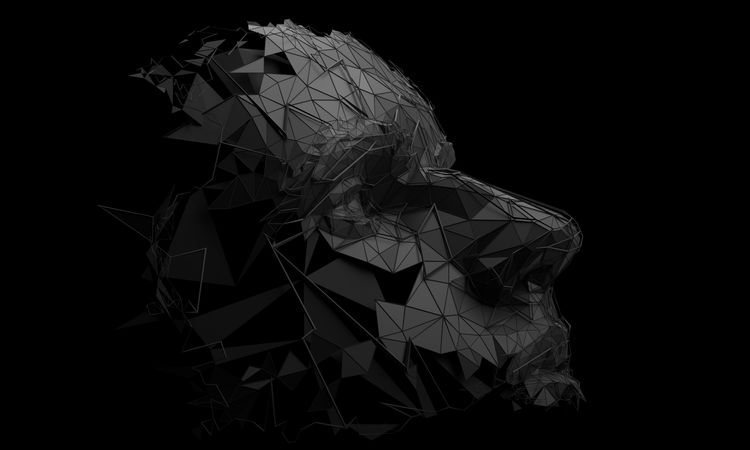Does a Political Identity Define an Individual, or Is There More to the Story?

My Dad voted for Donald Trump in 2020 and my Mom voted for Joe Biden. They’re still together, and they’re doing just fine. That being said, let’s take it back to 2016.
Trump got elected. The news intensified. Everyone you knew became a pundit.
The collective psyche was cleaved in two. Some were laughing arrogantly and others were shaking with fear. People voted for a man like that, and there was newfound paranoia that those people were among us. Any connection to him became a connection to everything he represented.
The internet allowed us to find refuge in forums, discussion boards, and meme pages. At any time, you could be reassured by images and comments that the other side was wrong and that you were in a safe place.
Knowing other people felt the same way you did became intoxicating. Before we knew it, we were all halfway to radicalized, and we still felt like the reasonable ones.
It’s a painful experience to watch a loved one’s eyes glaze over as they regurgitate something fed to them by an algorithm. I saw that insanity. I saw friends become obsessed with conspiracy theories. I had friends accusing me of being on an enemy team. I hated what this was turning people into.
We need to remember, or at least consider, that there is a person behind a set of beliefs. They have hopes and desires and failures and memories like you do.
People are not one-dimensional, and our identities have deeper roots than our political beliefs.
Are Your Political Views a Reflection of Who You Are?
Yes. Of course.
Here’s an excerpt from a student debate on the topic:
How can you even say that what a person believes about abortion, immigration, gay marriage, healthcare, minimum wage, etcetera does not reflect their character? Whether we vote Democrat or Republican, we are making a decision on how we think real people should be treated. If that doesn’t align directly with one’s character, then I don’t know what does.
Your political views have way more significance than your views on sports, for example. They can reflect your highest personal values. But we need to consider what else they reflect, like your perceptions, your paranoia, your level of ignorance, and your emotional health.
How one person feels about a topic does not tell you everything about them. You can share values with a person without completely agreeing.
Here’s a made-up example:
Jim believes that armed guards should be present in schools to protect children.
Clark believes that guns should never be around children.
What value do they share? They both care about the well-being of children. They just disagree on how to exercise that value.
They can at least bond over good intentions.
Then again, the consequences of good intentions can be dire:
Linda believes that vaccines cause autism and should not be given to children.
Steve believes that vaccines are safe and should be given to children.
They both care about the well-being of children.
The difference here is perspective and level of ignorance. But how do you make someone less ignorant? You would think if you exposed them to other points of view, then they would become more nuanced and reasonable, right?
Well, it has been shown that being exposed to opposing viewpoints on our feeds does not change our minds. Seeing opposing viewpoints on a phone translates into seeing enemy propaganda.
To even have a chance at changing anyone’s mind, they would need to have face-to-face interactions and firsthand experiences.
You can only grow through confronting your ignorance, by testing it in knowledge and personal experience. We need other people to provide those things. We can’t retreat into our camps and pretend the other side doesn’t have anything useful to teach us.
Christian Piccolini: A Lesson in Changing Someone’s Mind
Where do political arguments ever lead? How do you get a person to change their views, especially when they have them wrapped up with their sense of purpose? Some say it can’t be done, and yet, you have people like Christian Piccolini.
Christian Piccolini is a former white supremacist. He was radicalized at the age of 14 after being coerced into joining the Chicago Hammerskins, a skinhead gang. After years of extremism, he escaped the movement and devoted his life to helping others escape too.
His winning strategy is empathy. He convinces people to leave extremist movements even when they’re devoted to the core.
His first goal is to listen. He asks them about their beliefs, their relationships, their childhoods. He looks for what he calls “potholes,” or traumatic moments in the person’s life that drove them to find meaning in extremism.
He then tries to get them to recognize what these movements are providing for them emotionally, and how there are better ways to address their pain.
“What leads people to those movements is not the ideology,” he argues. “The ideology is simply the final component that gives them permission to be angry.”
Political belief is not always motivated by truth or righteousness. It can be a desperate expression of a person’s insecurities, damage, and unmet needs.
If you align your identity around a single belief, then any threat to that is a threat to you. You don’t care about the truth as much as what you want the truth to be.
Christian does not always succeed in changing someone, but when he does, it isn’t through a brutal argument over how wrong their beliefs are.
It’s through figuring out why they’ve come to see the world that way. It’s through understanding. And it works.
So the next time you find yourself in a political argument, maybe do more listening than talking. No matter how ugly and delusional the other person sounds to you.
United States Politics and the News
We rally behind our party like we rally behind a sports team. You would think we’d treat politics differently. But we don’t. And as a result, we’ve been becoming more divided for decades.
More than ever, news and politics have become entertainment. It’s becoming common knowledge that mainstream media profits off your attention.
The more passion we dump into our political conflicts, the more we tune in to confirm how foolish the other side is. Someone out there stands to make money off of the arguments you have with people you care about.
According to political analyst Ezra Klein:
The political media is biased, but not toward the left or right so much as toward loud, outrageous, colorful, inspirational, confrontational. It is biased toward the political stories and figures who activate our identities, because it is biased toward and dependent on the fraction of the country with the most intense political identities.
We only see the extremes. The loudest voices get the most attention and most reasonable people aren’t interesting enough to make the news. This gives us the unhealthy impression that we’re surrounded by psychos.
People are losing by being divided. At the very least, we can agree that something is wrong with how news media is presented to us. That’s a bigger problem than what the other side believes. That’s a problem that affects everyone.
Mindsets For All the Political Hostility
We all believe something. And I doubt you know anyone you never disagree with. But that doesn’t mean you can’t see their character.
It doesn’t compromise your connection with them. When you reach a certain level of trust, you don’t let some conflict over things you found online destroy the relationship you’ve built.
And to be honest, if someone’s personality is nothing but politics, then there probably isn’t much to them besides fear. When they walk outside and look at the people around them, all they see are potential enemies. Potential agents of the other side. That’s a tragic way to walk through life.
I don’t want to apologize for what I believe, but I don’t want to push my beliefs on anyone either. I only want to see a person before I see their politics.



